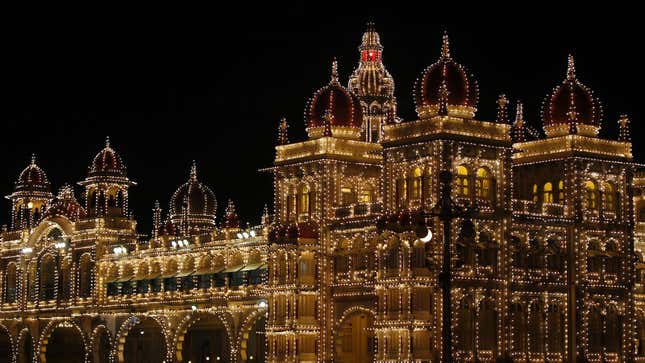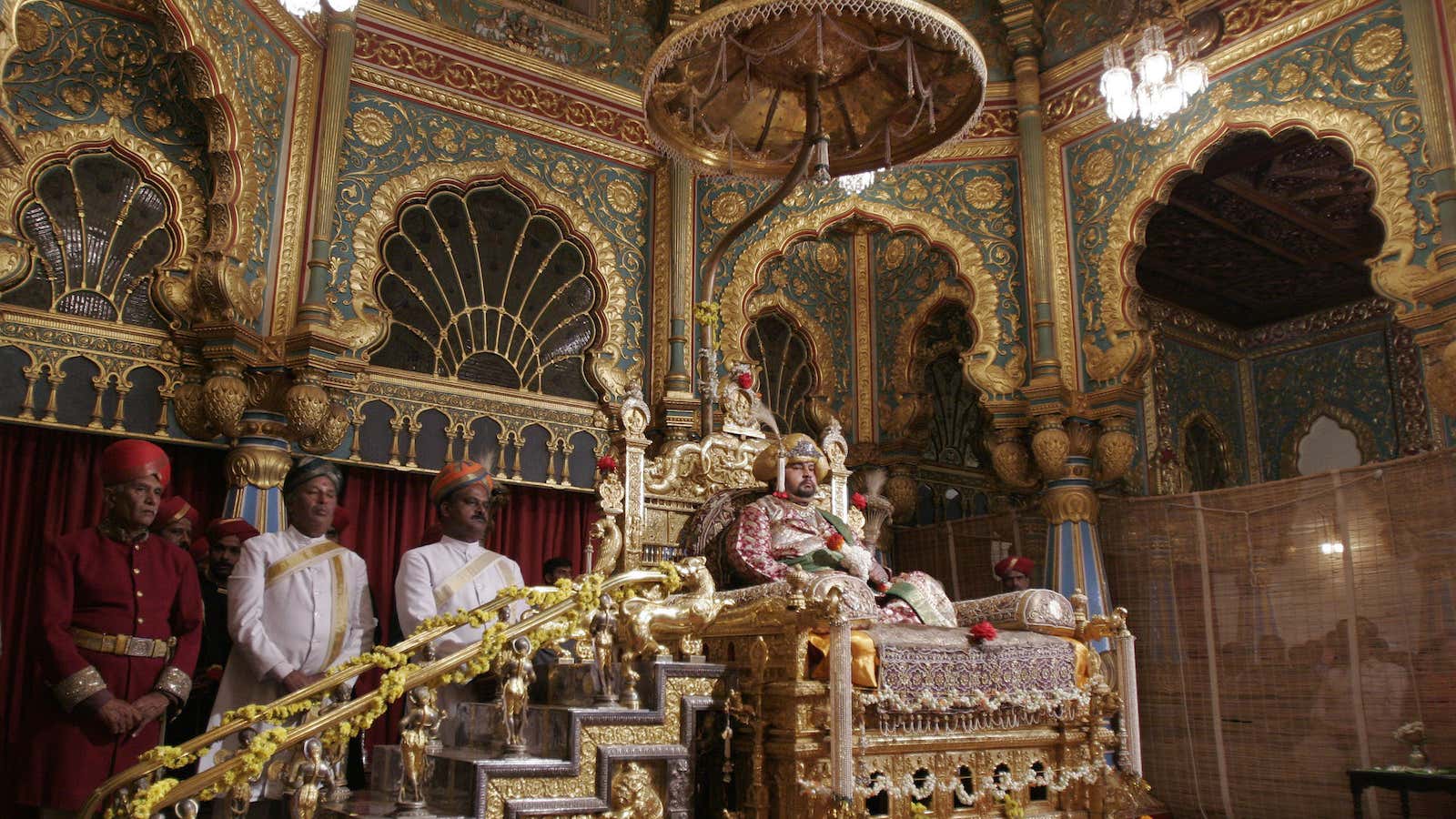For much of their 600-year-old history, the Wadiyar dynasty—rulers of the erstwhile kingdom of Mysore, in the southern Indian state of Karnataka—has been trying to unsuccessfully ward off a deadly curse.
“May the Wadiyars of Mysore not have children for eternity,” Alamelamma, the wife of a king whose empire the Wadiyars annexed, is thought to have said sometime back in the 1600s. And 400 years later, that curse seems to have done its job.
On May 27, the royal family—considered one of the richest in India—appointed 22-year-old Yaduveer Krishnadatta Chamaraja Wadiyar as the new heir to the throne following the death of 60-year-old Srikantadatta Narasimharaja Wadiyar in December 2013. Yaduveer is not the former king’s biological son, but a distant nephew.
Srikantadatta and his wife, Pramoda Devi Wadiyar, were childless.
Since the curse, the Wadiyars have birthed offsprings only in alternate generations. Whenever a king (or in some cases queen) could not have a child, the monarch adopted a child from the extended family.
The last king of Mysore was a direct descendent of the former ruler Jayachamarajendra Wadiyar. But Jayachamarajendra was a nephew of Krishnaraja Wadiyar IV, the king who ruled before him.
Mysore’s royal family has assets worth some Rs80,000 crore ($12.6 billion) and is the custodian of a number of palaces and much artwork.
The curse
In 1612, the king of Mysore dethroned Sri Rangaraya, the governor of Srirangapatna—an adjoining kingdom—while his wife Alamelamma escaped with all the royal ornaments. When Wadiyar’s army tracked her down, Alamelamma committed suicide to escape arrest.
But before killing herself, she cursed the royal family. In an effort to counter the curse perhaps, the Wadiyars installed a statue of Alamelamma at the Mysore palace soon after learning of her suicide. Even today, she is worshipped as a deity in the palace.

But the legendary curse hasn’t dissipated, and Yaduveer—a student of English and Economics at Boston University—is now the 27th king of the erstwhile kingdom of Mysore.
The glittering coronation ceremony for the young, bespectacled king was held at the Amba Vilas Palace at Mysore between 9.25 am and 10.38 am on Thursday. It was conducted amid Vedic chants and slogans hailing the Mysore royalty and the new king. Several top political leaders of Karnataka were also present.
Yet, the coronation is only symbolic as the royal family does not hold any power to run the state or collect taxes. In an interview with Scroll.in, Pramoda Devi explained: “I don’t think of myself as a Maharani… It was only during Dussehra celebrations when we had to perform certain rituals as per the custom, that we wore all the royal finery. Other than that, both my late husband and I, are just normal people.”
The kingdom
India once had over 500 independent princely states, where the princes enjoyed a life of affluence and power. After gaining independence in 1947, most of these princely kingdoms were absorbed into the Indian state. Following this, aristocrats were stripped of their honours, privileges and revenue by the government.
And since then, several royal families—including the Wadiyars—have been involved in legal battles over their property and assets.
Last year, Pramoda Devi Wadiyar accused all successive governments since 1976 of “troubling” the family. In the initial treaty signed in 1950 between the Wadiyars and the Indian government, the latter had apparently agreed to allow the property of the Mysore royal family stay with its members. Over the year, however, the government has taken control of several of these properties, which has been challenged by the Wadiyars in court.
“The palace issue is in court, it has been more than 38 years now…. once the Supreme Court had passed an order directing the government to hand over possession of the portion of the palace taken over by the state government for maintenance and management. Instead of complying with the order, the government proposed to take over the palace property through the special legislation, which we have challenged,” Pramoda Devi said last year.
And this year, after Yaduveer was announced as the heir to the throne, another nephew of Srikantadatta, Kanthraj Urs cried foul over the appointment. He then filed a case seeking a division of the family’s property.
The new king, thus, has inherited more than just the title and assets of Mysore’s erstwhile kingdom.
